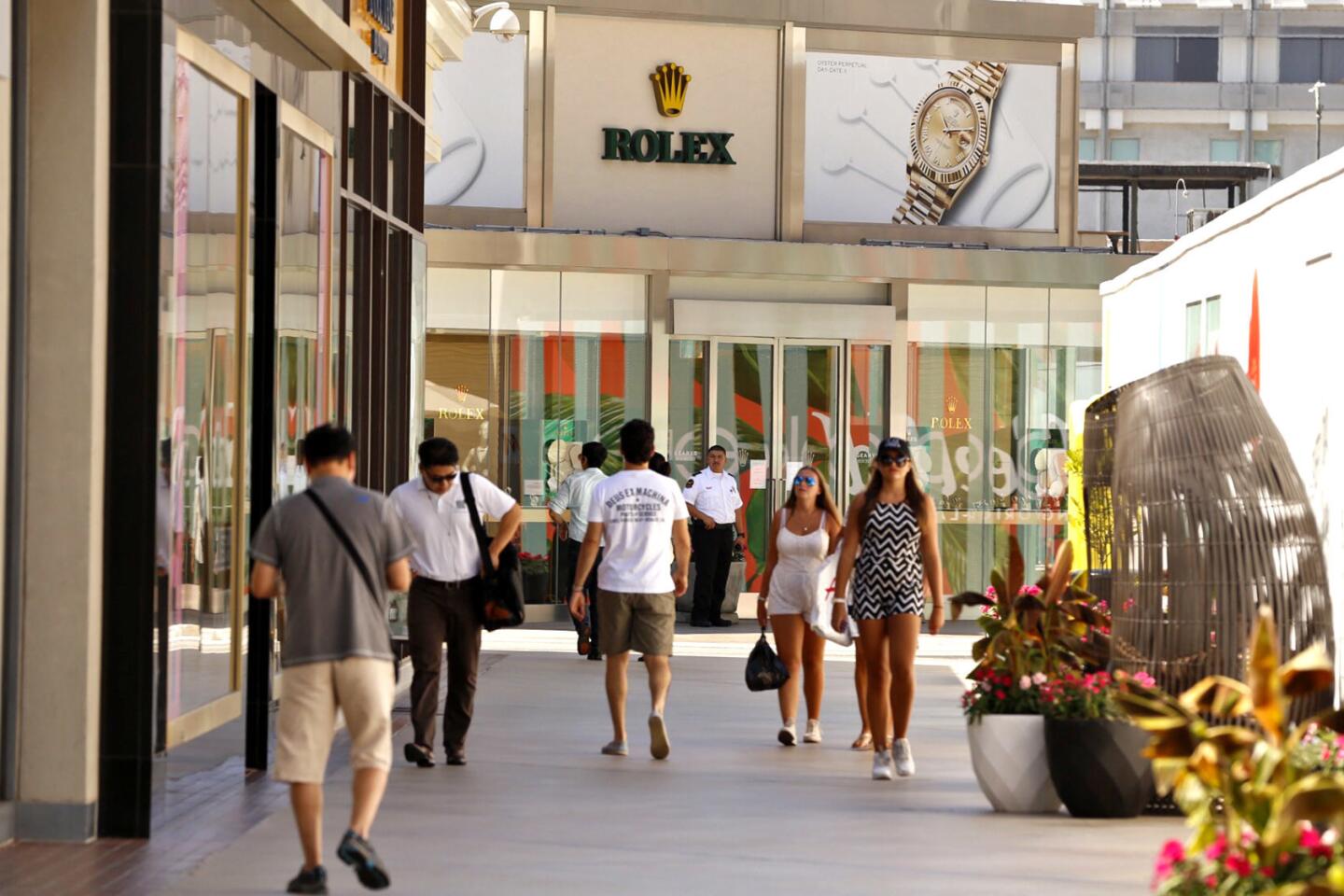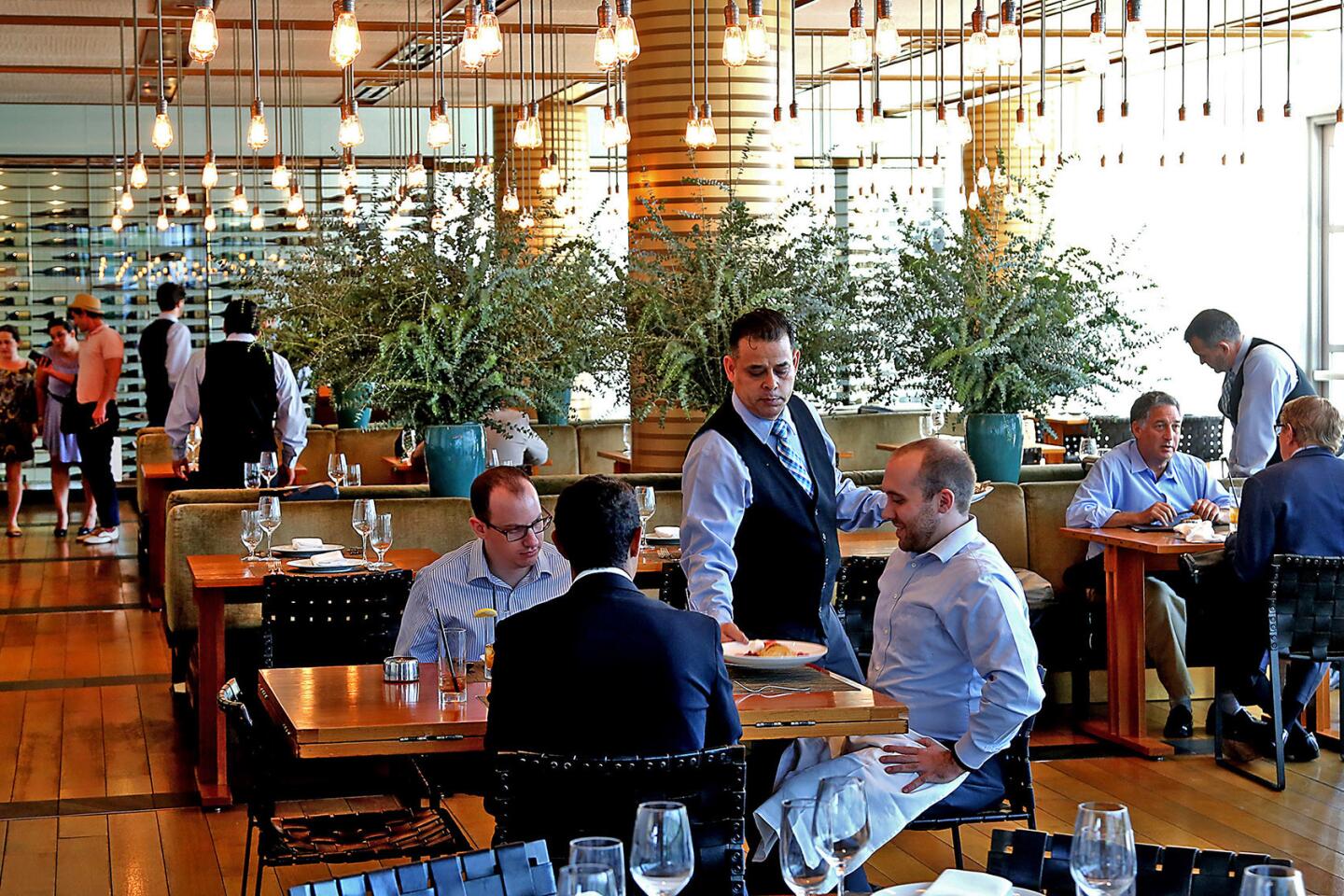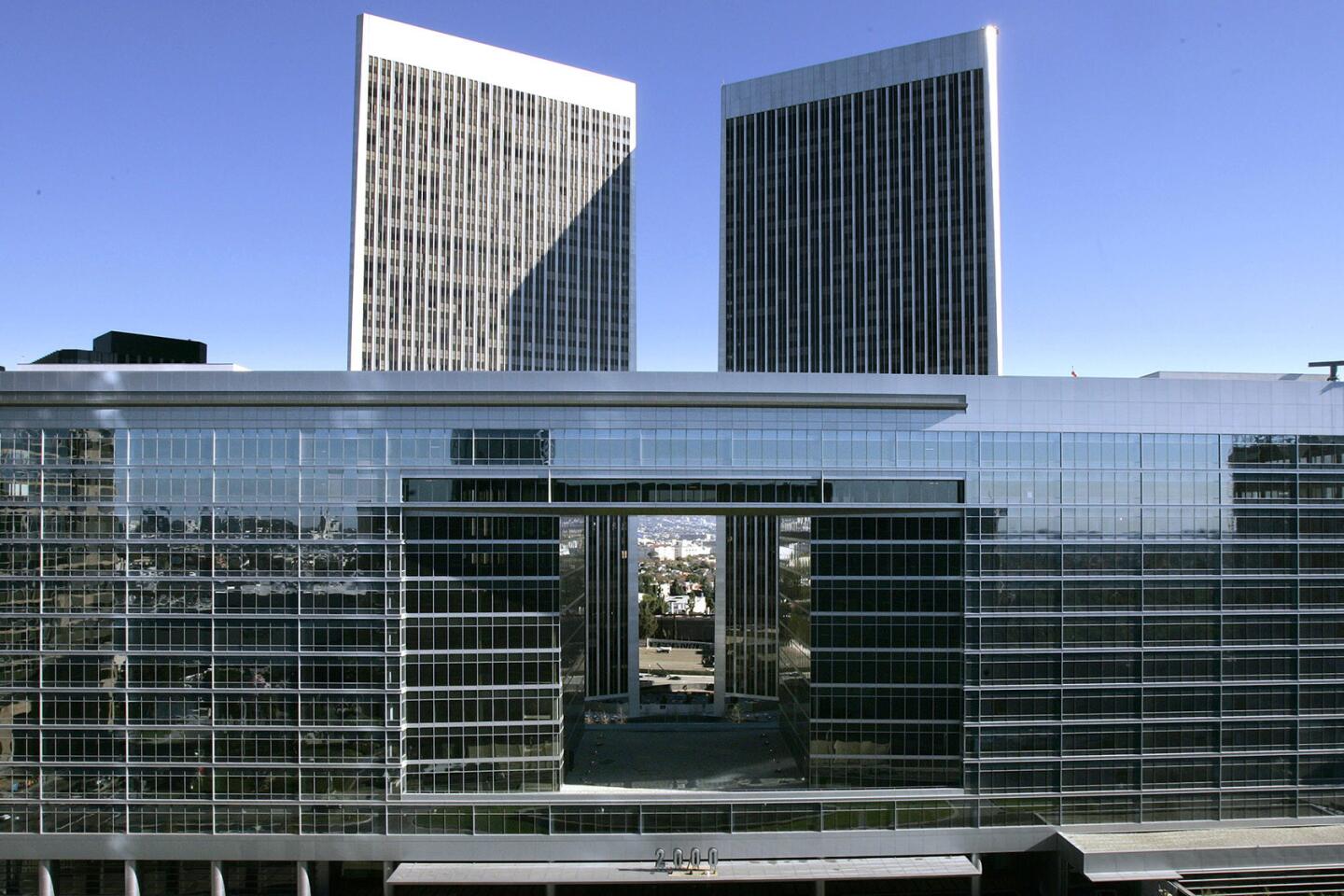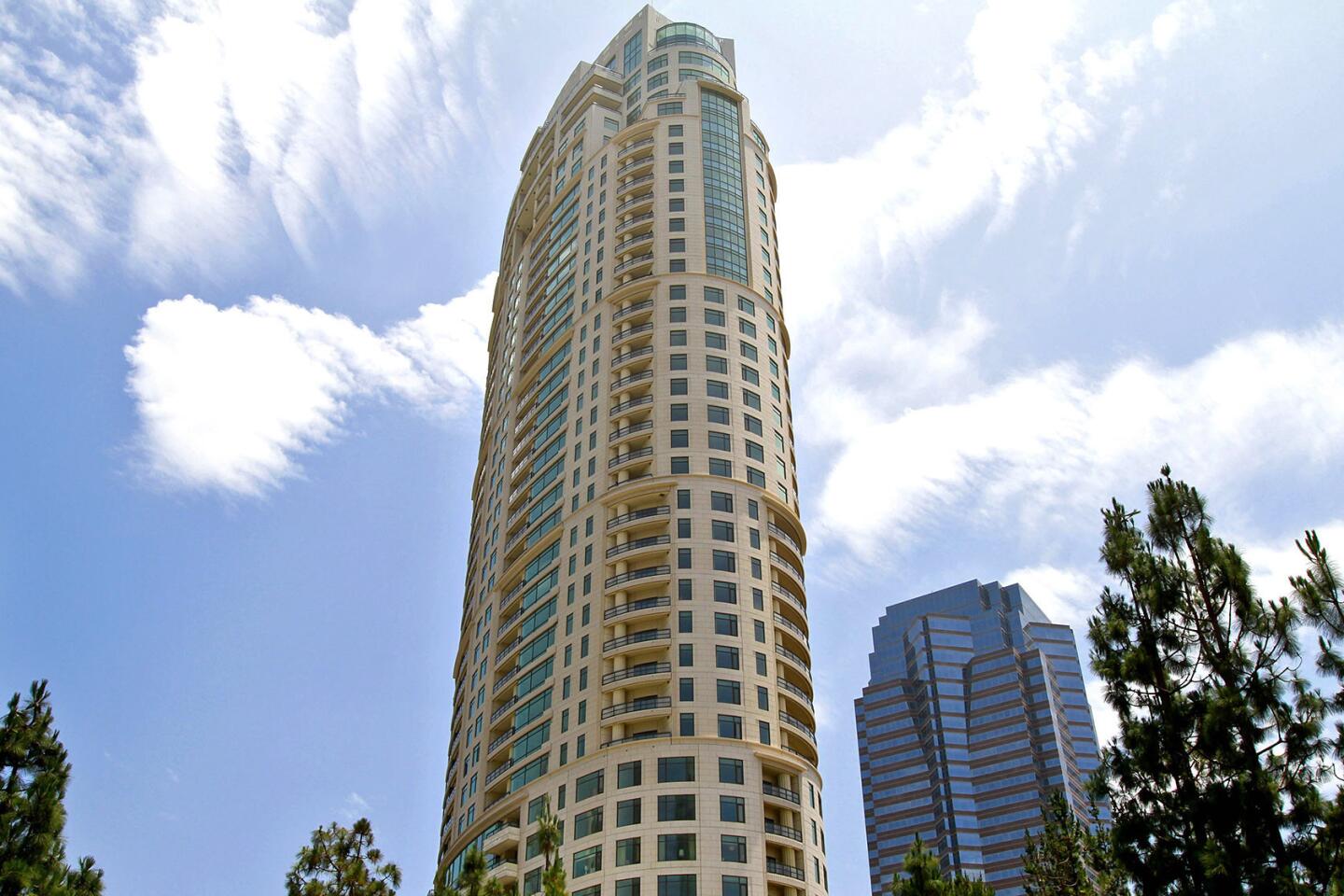Neighborhood Spotlight: Century City starts to make good on an old urban promise
- Share via
In the late 1950s, execs at 20th Century Fox were fighting a ferocious battle against television, a disruptive new technology that was eating into the margins of the movie business.
Their efforts to stanch the bleeding — which included bankrolling the disastrous Elizabeth Taylor epic “Cleopatra” — only worsened the problem, and in 1961 the cash-poor studio found itself selling its expansive backlot to the aluminum giant Alcoa for $50 million.
The new owners of the 260-acre tract tossed out an earlier master plan by L.A. architect Welton Becket and hired a modernist dream team consisting of such luminaries as Becket, I.M. Pei and Minoru Yamaskai to create a new vision for what would become Century City.
They were to design a downtown of the future, an upscale mixed-use development convenient to Beverly Hills and the disposable income of its residents but free from the height restrictions that kept that city strictly low-rise.
Century City was brilliantly successful at eliciting beautiful modernist designs but far less so in creating a thriving 24-hour downtown. Like much of American commercial architecture of the 1960s and 1970s, the buildings that lined the Avenue of the Stars turned their backs on the street.
By creating self-contained mini-cities out of each building, where a commuter could arrive by car, park it in a huge underground garage and take an elevator to the office, all without stepping foot outside, developers effectively killed any chance for a vibrant street scene. An adjustment in the ratio of planned residences (fewer) and office buildings (more, and bigger) ensured that the place would be a ghost town after dark.
That corporate bunker mentality has now gone the way of the sky bridge and the subterranean food court, and Century City is belatedly trying to develop a more dynamic mix of uses as the neighborhood prepares for the Purple Line subway extension, which will have a stop on Constellation Avenue.
Westfield Century City is in the midst of a massive mall makeover that includes street-level retail and a pedestrian plaza, and the Century Plaza Hotel is undergoing its own transformation. Add to that the hundreds of new high-rise housing units either under construction or in various stages of planning, and it seems that Century City might just be on the cusp of becoming a real urban neighborhood.
Neighborhood highlights
Heaven for modernism fans: If the books on your coffee table tend toward pictorial celebrations of the International style in general, and Welton Becket in particular, here’s your happy place.
The highest of the high end: Competition for tenants is so fierce among the new luxury towers popping up all over Century City that they are trying to lure buyers by providing amenities like Botox treatments and butlers.
Location, location, location: Century City is in the heart of the booming Westside, and the coming subway extension will put downtown within reach without having to fight the gnarly cross-town traffic on Pico and Olympic.
Neighborhood challenges
The quiet life: As a great punk rock song once put it, in Century City “everything is so nice and pretty,” but exciting it is not (unless you think the bar scene at the Westfield is lit).
Expert insight
Irene Arathoon, a real estate agent with Coldwell Banker, calls Century City “one of the best secrets in town.”
On the weekends, when the high-rise office towers are empty and traffic clears, the neighborhood becomes “one of the most pleasant and most quiet places to be in the city,” she said.
Because the neighborhood skews heavily toward condos, it’s become a magnet for young professionals as well as older homeowners who have downsized.
“People who have an eight-bedroom or nine-bedroom home in Bel-Air that they don’t have a use for anymore, retirees who still want to have a lifestyle — that’s what Century City provides: that chic upscale style of living, but you are still in the middle of town,” she said.
Market snapshot
Portions of the 90025, 90064 and 90067 ZIP Codes overlap the Century City area. In the 90025 ZIP, based on 36 sales, the median price for condominiums in August was $773,000, according to CoreLogic. In the 90064 ZIP, the median price was $747,000 based on seven condo sales, and in the 90067 ZIP, nine sales resulted in a median price of $1.142 million.
Report card
There are no public schools within the boundaries of Century City. Nearby institutions include Fairburn Avenue Elementary and Westwood Elementary, which scored 945 and 940, respectively, out of 1,000 in the 2013 Academic Performance Index. El Rodeo Elementary had a score of 897; Ralph Waldo Emerson Middle scored 728; and Beverly Hills High had a score of 865.
Sign up for Essential California
The most important California stories and recommendations in your inbox every morning.
You may occasionally receive promotional content from the Los Angeles Times.








